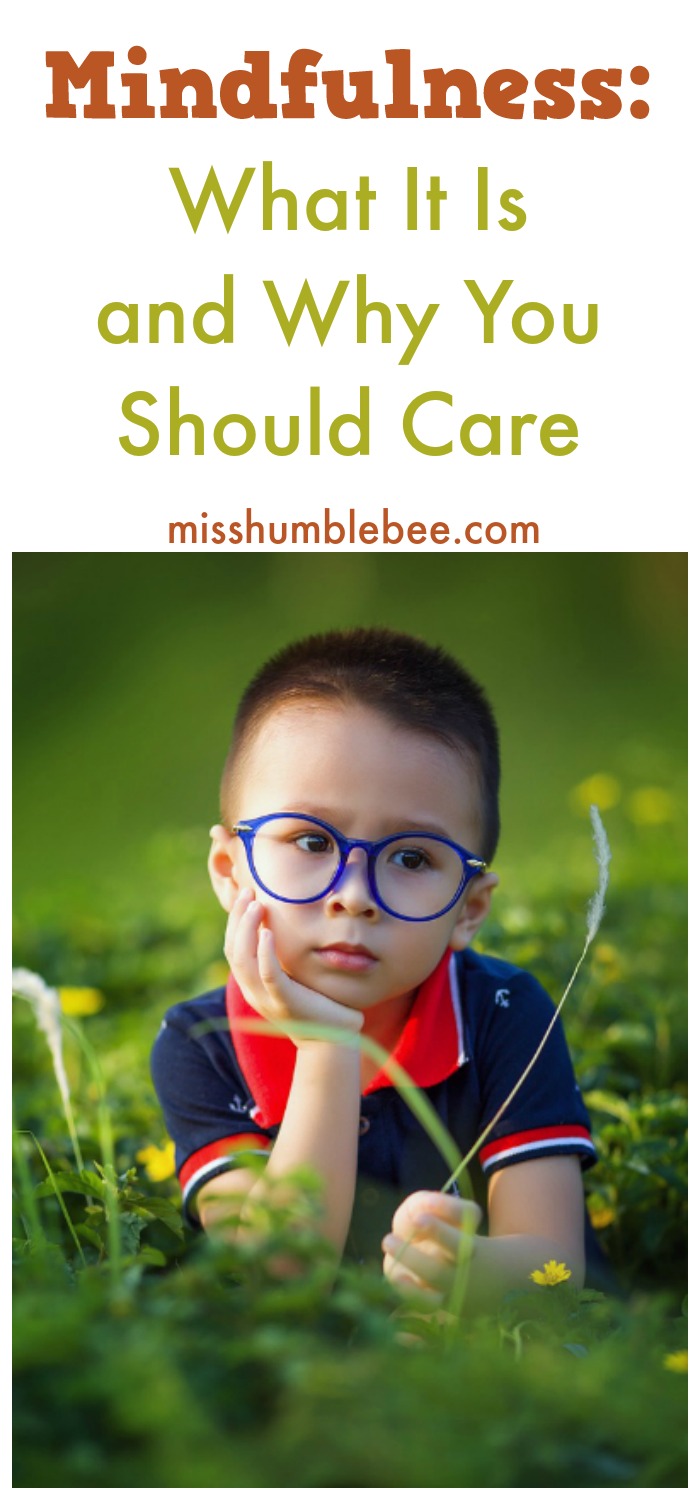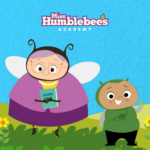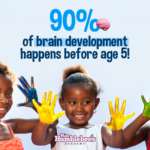Mindfulness seems to be the latest buzzword making it’s way around the internet.
Mindful meditation. Mindful parenting. Mindful eating. It’s been applied to a number of situations, but what is it exactly? Just the latest fad that will give way to something else in a month or two?
Well, maybe. But when you dive into what mindfulness really is, you might discover that it has more to offer both you and your children than you first thought.

Mindfulness: What It Is and Why You Should Care
First of all, what is mindfulness?
Mindfulness is simply being in the moment, of being conscious of your thoughts and feelings, both physical and emotional.
It sounds easy enough, but in a society that considers busyness a virtue, it’s actually quite difficult. Even if we didn’t live in a constant state of ‘go go go,’ parents, as a group, probably have the hardest time with mindfulness.
Taking care of children requires near constant brain activity, leaving little space for conscious awareness. Who has time to think about how they’re feeling when one kid needs a diaper change, another is begging for a snack, and the third is dangerously close to grabbing the knife you left on the counter last night?
So should you even care?
It would certainly be easier to ignore the buzzword and let it make way for the next thing coming down the pike. However, when used, mindfulness can be incredibly helpful for both parents and children.
Imagine for a moment being totally present when you’re with your kids. Not distracted by your phone. Not making a mental To Do list while your child tells you a story. Completely present. Don’t you feel calmer just thinking about it?
And what about your kids? How would your full attention affect them? Would bad behaviors decrease? Confidence increase?
That’s just one scenario in thousands that take place every day. Imagine what would happen if you worked to incorporate mindfulness into many of your daily activities.
According to the American Psychological Association, mindfulness reduces stress, improves working memory and focus, and reduces emotional reactivity to name just a few benefits.
Clearly mindfulness can be useful to both parents and children.
How can you become more mindful?
Mindfulness takes practice.
If you live an especially busy or distracted life, you may find the changes to be especially difficult, but you may also discover the greatest benefits.
Start small. Choose one activity you usually do without thought and pay attention to it. Focus on your five senses: Sight, sound, smell, touch, and taste.
If you know that a certain activity stresses you out (for example, your morning commute or making dinner while the kids seem extra needy), pay attention to how your body feels during that activity. Are your shoulders tense? Do you tighten your jaw?
When you are conscious of how your body feels, you can consciously relax those tense spots, which in turn will help your entire body and mind relax.
These exercises can also be done with your children. Teaching them at an early age to pay attention to how they feel will benefit them immensely throughout their lives.
For more ideas to incorporate mindfulness into your everyday life, visit the following articles:
7 Easy Ways to Be Mindful Every Day :: Psych Central
13 Things Mindful People Do Differently Every Day :: HuffPost
Mindfulness Activities for Children and Teens- 25 Fun Exercises for Kids :: Positive Psychology Program
Give mindfulness a try. We think you’ll like the results!










